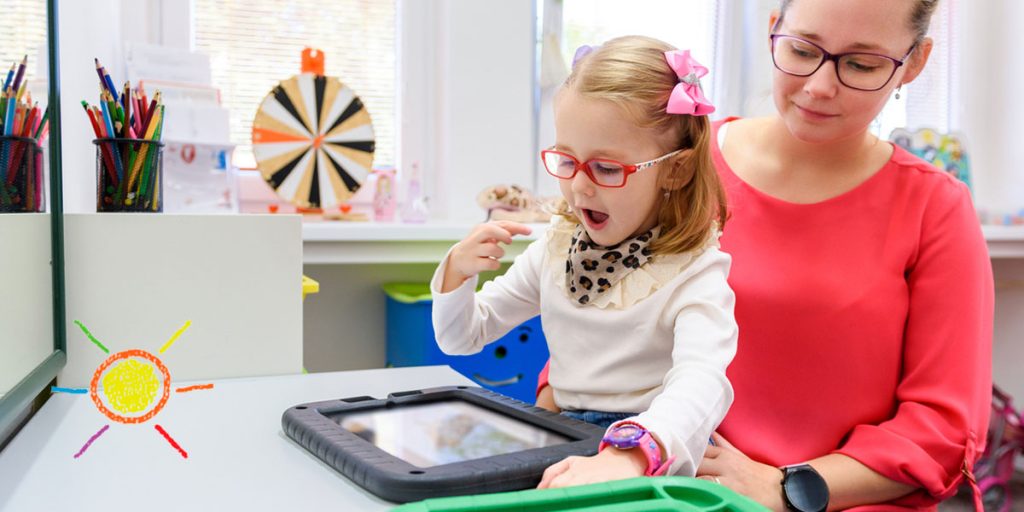Every parent can relate to the momentary helplessness that sets in when a child won’t stop crying or fussing. It can feel instinctual to step in and calmly soothe or do what you can to distract your upset child. As a parent, it’s natural to want to stop your child from experiencing uncomfortable emotions. You want your little one to be happy and carefree.
However, there is often far more power in pausing in these moments. Instead of frantically trying to comfort your child, you could pause and remain calm, encouraging them to do the same.
In this article, we’ll discuss the invaluable benefits of embracing sensory breaks in pediatric occupational therapy and parenting.
How Moments of Silence Can Support Emotional Development
As the age-old saying goes, silence is golden. But this adage is more than merely a statement for those who enjoy quiet — it describes the benefits of silence in neurological processes.
Imagine for a moment that you are experiencing waves of intense emotion, whether due to frustration, anger, heartbreak, fear or despair. Would the situation be eased or worsened if a friend or loved one frantically tried to calm you down and redirect your emotions? Or perhaps, would you move through the motions easier if that loved one sat by your side and said and did nothing?
It is easier to self-regulate in moments of silence. For this reason, mindful meditation practices are widely recommended as mental health breaks that can improve emotional well-being. According to mindful meditation studies, silence or the absence of noise can increase cell density in the prefrontal cortex. This brain region is responsible for emotional regulation, problem-solving and decision-making.
As an adult, giving yourself enough grace to pause during these moments is a bit easier. It may be subconscious, but this golden moment of silence helps the brain regulate and process. The same applies to early learners. The only difference is that our little ones rely on our guidance to move through emotionally tricky moments. By pausing and simply being present, children can learn to experience, process and release emotions.
Forging A Deep Emotional Bond Through Silence
An adult’s intentional silence is a kind of intervention that can help children release feelings of distress. However, the power of silence is more potent than just that — loving silence is also a bonding opportunity. As children learn this unspoken language of co-regulation, moments of silence will create a safe space to experience uncomfortable emotions. While co-regulation explains the process of encouraging children to model behaviors in times of stress, co-regulation fosters self-regulation.
We often underestimate the value of quiet and stillness and the impact of our own silent presence. However, the act of remaining calm and quiet often conveys far more meaning and emotion than words ever could. Still, if you’re questioning the validity of your silent presence, bear in mind that early learners still need to grasp communication fully. So, silence can be even more valuable to our little ones still learning to convey the correct words.
Taking a Break to Support Language Development
Parents and educators can support language development in early learners through strategic silent interventions. In mindful therapy for children, educators can incorporate moments of pause at key intervals. Not only will this support emotional development, but it will also support language development.
Pausing gives young children a moment to process the sounds in their environment, allowing them to respond in a way that makes sense to them. Early learners are just starting to understand the various sounds that comprise words. We often don’t give our children enough time to process what they have just heard and respond before more questions are asked.
Instead of overwhelming young children, moments of silence offer enough time to understand and then vocalize a response. In vocal exchanges with an adult, a child’s speech and conversational development improve with periods of silence. For example, instead of rushing through a storybook session to entertain an early learner, pausing and holding silence for a moment ensures the child has time to understand the storyline. When singing nursery rhymes, pausing can encourage a child to fill in the words, supporting language development.
The Impact of Silent Reflection
An integral part of successful pause and play therapy is allowing enough time and space for children to respond. While this takes practice and a world of patience, it can make a significant difference in early childhood development. Silence makes it possible to self-reflect on internal and external experiences more accurately and without judgment.
Therapists and parents have the opportunity to practice reflection at the same time, providing ample opportunity to consider what has been learned from time spent with the child so far. Ultimately, emotionally charged moments are easier to manage calmly and positively.
Pause and Play Therapy Tips for Parents
If your early learner has developmental delays and you’re considering the benefits of pause and play therapy, it’s crucial to understand that your child’s progress does not only occur in therapy sessions. Giving your child a break from therapy now and then is often beneficial. Time away from play therapy will enable your child to practice their new skills in their day-to-day life. Just as a moment of silence encourages self-reflection, occasional breaks from therapy can be just as beneficial.
However, it’s essential to discuss this strategy with your child’s occupational therapist so that they can recommend suitable break times. It’s never best to remove a child from any kind of treatment program without guidance from the therapist.
Pause-and-play therapy strategies incorporate silent breaks in therapy sessions, ensuring early learners do not experience overwhelming frustration when they encounter challenges. Parents of children in pause and play therapy should borrow from session structures and techniques to continue these practices at home. Integrating therapy strategies into your child’s everyday life is the best way to reinforce what your child learns in sessions.
Explore Mindful Pediatric Occupational Therapy at MySpot Care
Pause and play therapy is beneficial for early learners with various developmental delays and those on the autism spectrum. If you are the parent or guardian of an early learner who can benefit from pediatric occupational therapy, reach out to MySpot Care.
We offer licensed applied behavior analysis (ABA) therapy in Houston and surrounding areas. We also provide in-home therapy in many regions across Texas. Our board-certified and licensed behavior analysts, registered nurses and licensed psychologists are readily available and fully equipped to support your journey.
If you have any questions about how our services can benefit your early learner, fill out our online contact form or call 281-894-1423.


